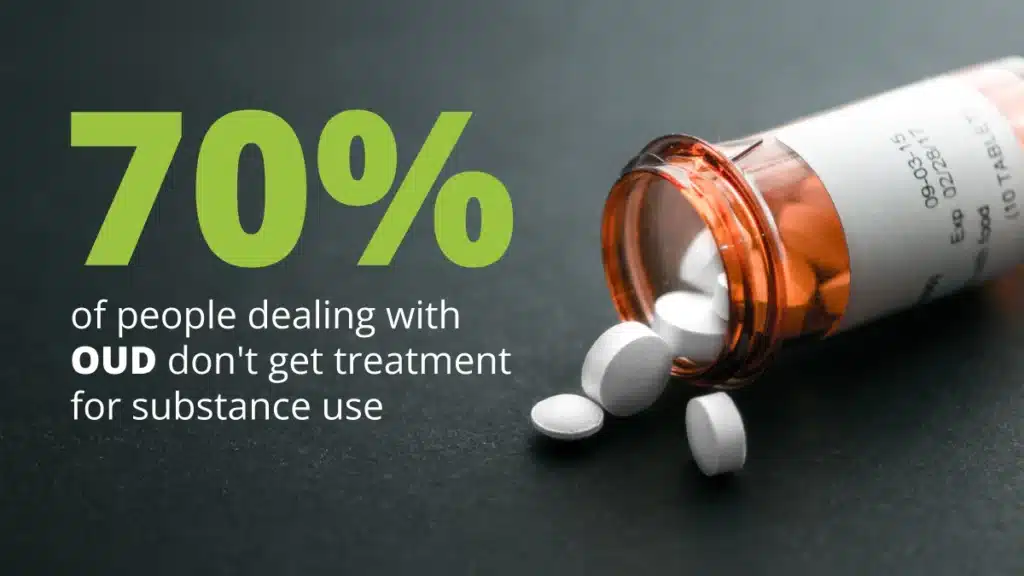Heroin overdoses have claimed the lives of 130,000 people in the last two decades all the United States. The rise in Opioids has called for a medical emergency, making it an epidemic. Drug overdoses are now the leading cause of unintentional death.
Circumstances of this addiction are challenging, making opioid addiction a significant public health issue. The risk of opioid overdoses and death increases when an individual develops an addiction.
What are the different sorts of opioids?
- Morphine
- Icodeine
- Heroin
- Methadone
- fentanyl.
- Hydromorphone and Oxymorphone are both opiates.
- Buprenorphine;
- Oxycodone
- Hydrocodone
Someone who abruptly stops or drastically reduces their use is likely to experience uncomfortable withdrawal symptoms. Starting over from prescription painkillers can lead to dangerous opioid dependence. This can happen even if the individual takes opioids as prescribed or recommended. Withdrawal symptoms and treatment options can vary from person to person.

Treatments For Opioids and Opiates
Detox is essential as a first step in recovering from opioid use disorder. Detoxification is rarely enough to ensure long-term success. Continuing treatment in a rehabilitation facility is necessary following detoxification.
Opiates and other chemicals alter behavior, brain chemistry, and structure, making quitting incredibly hard. The number of opioid overdose deaths rises as the supply of opioids grows.
For example, a decrease in opioid overdoses links to an overall reduction in opioid-related drugs. Over 70 percent of people dealing with OUD don’t get treatment for substance use due to lacking resources to reach a facility.
Risks Associated With Opioid Overdose
Despite the concerns above, a recent study has shown that not all prescribed opioids carry the same amount of danger. Opioids can have many adverse effects, such as addiction and drug abuse, due to insufficient pain treatment. When you see any of your friends in such a condition of addiction, you need to get them treated in these befitting ways.
The euphoric effects of numerous drugs are a primary motivation for many substance abusers. Everyone makes choices, and the costs of addiction can far surpass any perceived rewards.
Illicit drugs lead to a higher risk of increased death rate, and the abuse of opioids is also linked to prescription medicine. The threats are tied due to drug overdoses. For many people, rehabilitation from an overdose can be expensive.
It is also emotionally demanding, even if there are no long-term problems. The co-occurring use of benzodiazepines and opioids can result in a fatal overdose. A mental disorder increases your chances of developing a substance abuse problem. The risks are grave regarding physical health, employment, and mortality rates. Individuals with a substance abuse problem fare worse than those who don’t have a problem.
Opioid Overdose Treatment
Emergency room visits due to opioid overdoses have led to a decrease in overdose deaths. People dying from opioid overdoses make the general population more aware. They will be alarmed about the dangers of prescription drug addiction.
You need to beware of the unlawful usage of opioids. Improve the availability and efficiency of intervention and treatment resources. Expansion of capability and removal of barriers need the formulation of a coordinated treatment.
Moreover, a multidisciplinary strategy plan and evidence plan must be prepared. Prescription drug misuse and illicit opioid usage must be combated scientifically.
Medical-Assisted Therapies
According to a National Survey, more than 2.35 million people in the United States are dealing with Opioid Use Disorder, and substance use disorder has also been rising. Many behavioral therapies are medically assisted for maximum support.
- Increasing chances of survival
- Retention in treatment
- Enhance chances of employment
- Decreasing the risk factor of criminal activity
Behavioral Talk Therapy
The behavior therapies include counseling, and these plans can be designed for individuals and groups as per your priority. These evidence-based sessions are to provide you with stats regarding the stats and logical reasons to get rid of opioid addiction.
These therapies include cognitive behavioral therapy, EMDR, and dialectical therapies, followed with the help of medication. Your family members can also become part of it.
Naloxone
Naloxone can be administered intramuscularly and has an immediate impact. It helps in restoring normal breathing within three to seven minutes on average. The goal of this effort is to reduce the number of opioid overdose deaths. For naloxone to work better, it must be given at a dose that does not cause opioid withdrawal.
Lofexidine
You might have to deal with withdrawal symptoms throughout your recovery. In any such circumstance, Lofexidine is the treatment recommended by the experts. Individuals who face drug use disorder withdrawal effects can take this FDA-approved medication. After abstinence, resuming opioid drug use can cause dangerous impacts. NIDA has come up with this emergency medicine to cope with withdrawal symptoms.
Frequently Asked Questions
What is the most severe adverse effect of an opioid overdose?
When you get into opioid use, the mortality rate is high because a person who uses them gets respiratory depression. Moreover, there are rare chances of acute seizures and lung or cardiac disease.
What is the most toxic opioid?
Fentanyl is one of the most harmful and toxic opioids mixed with other harmful chemicals such as cocaine and heroin. Carfentanil is also one dangerous opioid.
How does one die of an overdose?
Using dangerous drugs such as morphine, Oxycontin and combining them can cause more than one symptom that tends to be very harmful. These drugs can be detrimental to your mental health.
Find Treatment for Opioid Addiction at The Haven
When your concern is finding effective opioid treatment, The Haven has you covered. From our premium detox programs to our behavioral therapies led by mental health professionals, ensure you experience a safe and comfortable recovery from your substance use disorder.
Whether it is heroin treatment, cocaine detox, or any other opioid, we are here to support you. Call us at 1 (561)328-8627 when you are ready to take the first step.